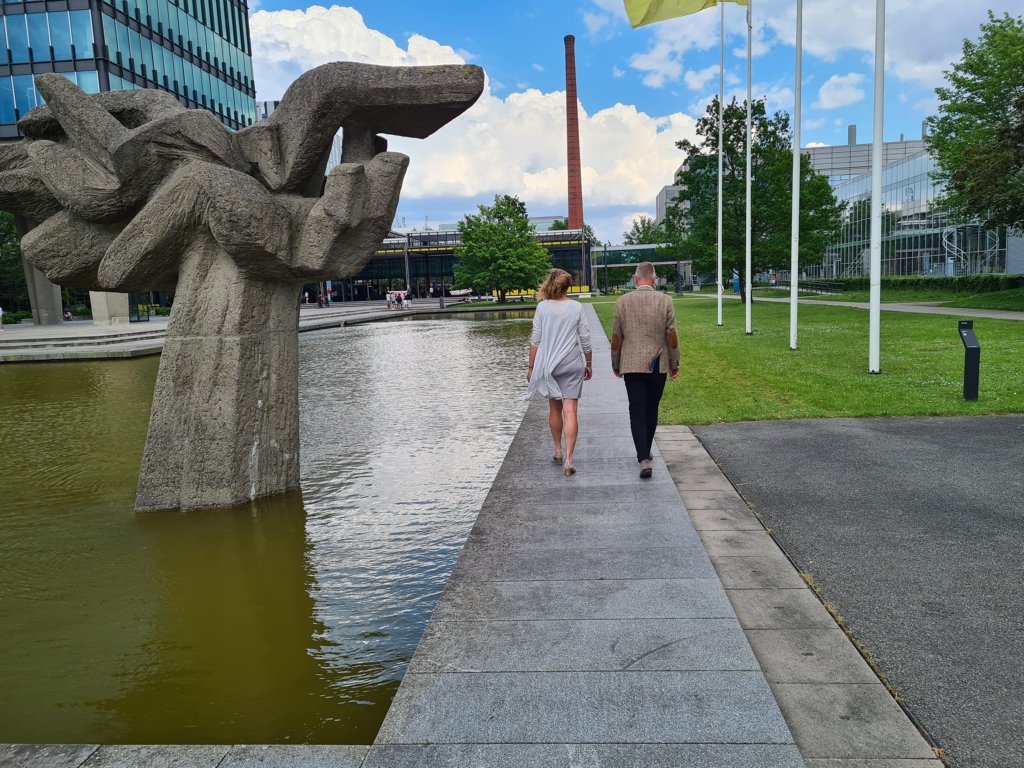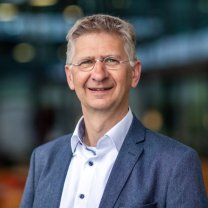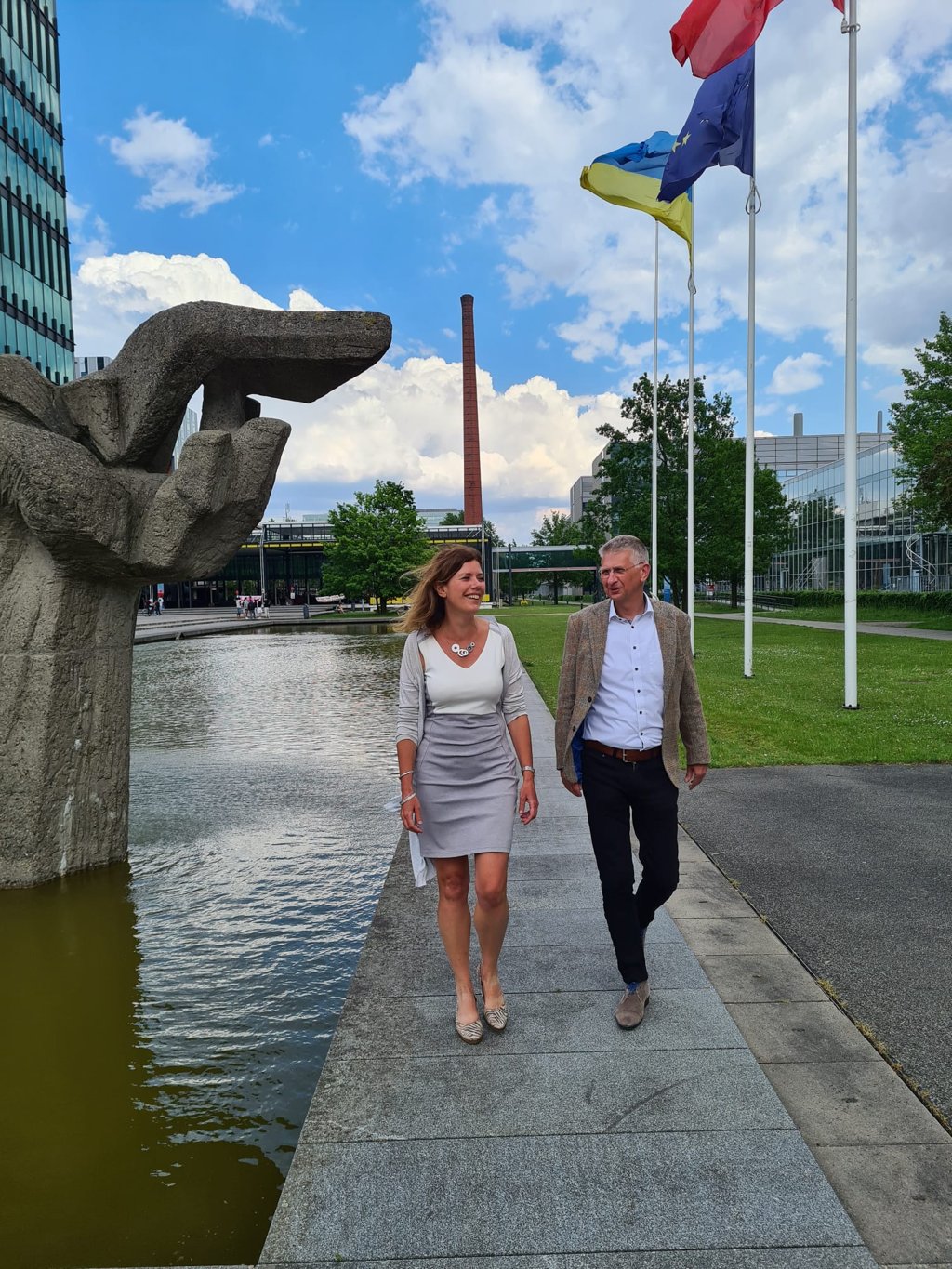About the complexity of society's current issues and the added value of the engineer.
An interview with Theo Salet and Marjolein Dohmen-Janssen, president and secretary of the Raad voor Technische Wetenschappen.
‘You only have to look at the facilities around us, and you realise that much of it needs to be redesigned. We are facing a housing shortage, our healthcare system is under pressure due to rising healthcare costs, and the agrifood sector is imposing an increasing pressure on people and the environment. These kinds of issues are complex and are beyond disciplines. You don't solve them just by building extra houses or lowering the ‘’eigen risico’’ (red: the manadatory own contribution in healthcare costs) in healthcare, for example. To provide the right solutions for this, you need the right knowledge, and that is largely derived from the technical sciences.’
Talking to us is Theo Salet, dean of Built Environment at TU Eindhoven. Together with 4TU secretary Marjolein Dohmen-Janssen, he coordinates the Raad voor Technische Wetenschappen (RvTW) in which Theo fulfils the role of chairman, and Marjolein the role of secretary. 4TU interviewed the duo on the TU/e campus about the origins of this consortium, the benefits of this collaboration, and whether they view the future of technical sciences positively or darkly now that the new cabinet's ‘’Hoofdlijnenakkoord’’ is known.
For those not familiar with de Raad voor Technische Wetenschappen, why was it established and what is its purpose?
Theo: The RvTW consists of a technology dean from each of the four Universities of Technology (TUD, TU/e, UT and WUR) the University of Groningen (RUG) and the president and the director of NWO-TTW. The engineering deans hence represent the total of 28 deans of engineering faculties in the Netherlands. The ‘’Raad’’ (Council) was established in 2018. At that time, it was still called the Techniekdecanenoverleg in which a delegation of deans from the four TUs and the RUG were seated to work together to create a first Sectorplan Techniek. The aim of this plan was to strengthen the scientific basis of the technical sciences so that we, as joint universities, possess the right knowledge to deal with the increasingly complex social issues facing us. The first sector plan included the constructive engineering science disciplines such as mechanical, electrical and civil engineering. In the second sector plan Techniek in 2023, design engineering sciences such as industrial design engineering and architecture have been added to this, as well as more multidisciplinary disciplines such as agrotechnology & food sciences and (bio)medical technology.
This sector plan strengthens disciplines, as a national plan has been made for nearly 200 new permanent academic positions. Our ambition is to thereby deliver more academically trained engineers and designers to the labour market and contribute to solving the shortages in the engineering sector.
In the case of this call, we hired a moderator who facilitated several consortia to come up with a research proposal. The Raad is then the facilitator and then the scientists continue working on it themselves.
‘Outreach and technology promotion’ is also a key focus of the RvTW. For instance, we recently granted a conditional contribution to the ‘’Co-teach Computer Science project’’. People from the business world are deployed as teachers for the subject of computer science in secondary education. The Ministry of Education, Culture and Science (OCW) funded this as a pilot project. In the transition to the next phase, the participants were looking for transitional funding. The Raad supports this idea because it is important that enthusiastic and content-rich teachers take care of science subjects in secondary education. Given the large teacher shortage, this is not easy, especially for science subjects. Currently, our contribution is still conditional, because we think it is important that more partners participate.
How is the Raad organised?
Theo: Each of the engineering deans within the council is a liaison to one or more discipline councils/ committees. In my case, this consists of Architecture and Civil Engineering. Moreover, as chair of the domain of engineering, I coordinate with the chairs of the other domains: Natural Sciences, Medical Sciences and Social Sciences and Humanities (SSH) and together we act as an entry point for external parties such as UNL (Universiteiten van Nederland) and OCW.
The 4TU.Federation is the one to address for administrative matters, we are there for content-related questions about the engineering domain and, for specific questions about one of the engineering disciplines, we can connect to the disciplinary platforms. The RUG is affiliated because it is the only university that, like the four technical universities, educates engineers.
Final question: a new cabinet is on its way, the coalition plans are known roughly. Do you view the future positively or darkly?
Theo: On the one hand very positive because engineers have so much to offer the world! Although nothing comes naturally. An example. The coalition partners plan to build an additional 100,000 houses a year. That's great news, of course. But where do you build all those houses, how do you heat all those new houses in times of an energy transition, how do you make them climate-proof, and do we build more sustainably and faster than ever before with, at the same time, major labour shortages?
These kinds of issues are diverse and complex, requiring new techniques and a systems approach. That is what engineers are educated in, and we will desperately need them to make this great reconstruction of the Netherlands possible.
Therefore, on the other hand, we are very concerned about the cuts to higher education and innovation mentioned in the ‘’Hoofdlijnenakkoord’’ between the forming parties, such as the scrapping of the Growth Fund, cuts to the ‘’Fonds voor Wetenschap en Onderzoek’’. Particularly about the cuts to the Sector Plans for which the council made such a beautiful national plan a year and a half ago, and to which young, talented scientists with permanent contracts have now been appointed to a large proportion of the nearly 200 positions in the engineering domain.
In addition, recruiting engineering students is a challenge when you realise that currently 60% of school students choose studies other than natural, medical, agriculture or engineering sciences.
Marjolein adds: Our tech promotion could really be better. The potential is there, because technology is at the basis of many things that young people care about, such as the climate, good public transport and a clean environment. As a sector, we will have to work harder to get the message across that technology is a relevant link in our future transitions. The council can make a difference by uniting the relevant parties to jointly get this promotion up and running. Plenty of work to be done!







